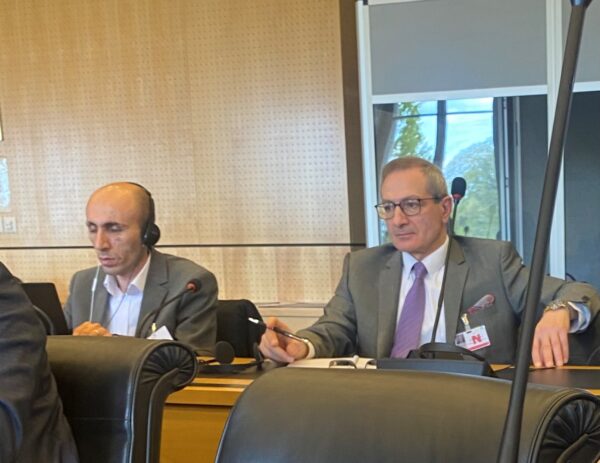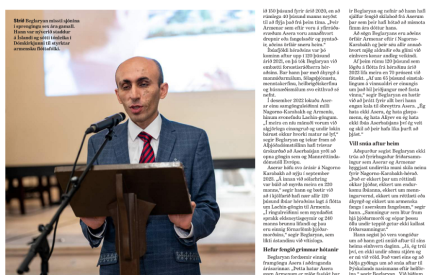by The Armenian Mirror-Spectator
GENEVA — Artsakh Union President Artak Beglaryan and International and Comparative Law Center representative Philippe Raffi Kalfayan, together with representatives of a number of other Armenian non-governmental organizations, participated in the discussions of the UN Committee against Torture in Geneva on April 22-23. The Committee was examining the periodic report of Azerbaijan. They also held a number of meetings with various UN mechanisms.
In March, the International and Comparative Law Center NGO, Union for the Protection of the Interests and Rights of the Artsakh People NGO, Rights and Justice Center Tatoyan Foundation and “Arbane” Foundation published and submitted a joint report to the UN Committee Against Torture, titled “Violations of the Convention against Torture and Other Cruel, Inhuman or Degrading Treatment and Punishment by Azerbaijan in the Context of Racial/Ethnic Discrimination towards Armenians.”
The speakers delivered statements at the Committee Against Torture’s briefing for non-governmental organizations, presenting first the cases of Azerbaijani torture against Armenians based on ethnic hatred back in April 2016. They emphasized that the impunity of those Azerbaijani crimes led to the 2020-2023’s sharp increase in torture and assimilated crimes, as a result of which the whole people of Artsakh were subjected to a ten-month siege and then forced displacement.
Read also
Kalfayan and Beglaryan stressed the evidence for the torture of ethnic Armenians captives in Azerbaijani detention facilities. They referred to the information shared over Azerbaijani social networks as well as to the testimonies of repatriated Armenian prisoners. In that context, they highlighted the need for active steps by the international community to protect and release Armenians still held as hostages in Azerbaijani prisons.

Philippe Raffi Kalfayan, right, and Artak Beglaryan
Taking part as observers in the discussion between the members of the Committee against Torture and the delegation of Azerbaijan, they witnessed the insistence of the Committee to obtain clear responses of Azerbaijani delegation to submitted allegations.
Todd Buchwald, Committee Expert and Country Co-Rapporteur, said “there were many reports of abuses against Armenian prisoners of war. One horrifying video showed an Azerbaijani soldier decapitating a struggling Armenian man, with the assembled crowd clapping and cheering. What steps had been taken to investigate these and other cases of ethnic hatred and prosecute any persons responsible?”
Azerbaijani representatives provided false information, covering up their mass crimes, undermining the essence of the Karabakh conflict, or justifying the prosecutions against prisoners.
The delegation said that “Azerbaijan rejected claims that Armenian prisoners of war were not treated in accordance with the Geneva Conventions. Prisoners of war were not tortured and received necessary medical care. After the signing of the Trilateral Statement, Azerbaijan had returned all Armenian prisoners of war to Armenia.”
The delegation claimed that “the Prosecutor General’s Office had undertaken investigations regarding the treatment of Armenian detainees captured on video. Some military officers had been found guilty of desecrating Armenian corpses and graves and were issued disciplinary sanctions or prison sentences. Two individuals had been issued prison sentences for the murder of Armenian nationals.”
Azerbaijani delegation ended by saying that “Any recommendations that were not based on established facts and reports received from credible sources did not contribute to the review process.”
Kalfayan and Beglaryan held follow-up meetings with the Office of the UN High Commissioner for Human Rights, the UN Working Group on Arbitrary Detention, the UN Working Group on Enforced or Involuntary Disappearances and representatives of other NGOs in Geneva. During the meetings, they presented the Azerbaijani crimes suffered by Armenians and consequently issues linked with the respective mandate of these bodies.
























































